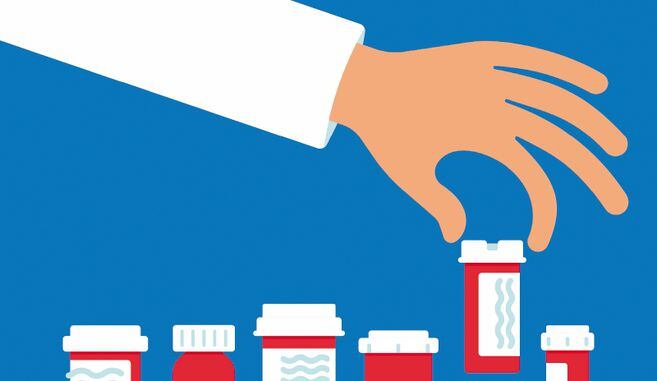
One investigation determined that there were 29,853 medication errors in Colombia between 2018 and 2019, but a very small margin could have consequences for the patient. Just 5% of errors are reported.
It may have happened to him that he went to the pharmacy in his neighborhood, or to the medicine dispensary in his EPS, and was given a medicine that was not what his medical order says. Medication errors are unlikely, but they do happen in Colombia.
It is estimated, for example, that 7% of hospital prescriptions have medication errors (although only 0.18%) are severe. According to a 2013 study carried out in non-serious hospitalized patients in Pereira, there are errors in the vast majority of prescriptions, such as the lack of registration of the medication during treatment (in 97.3% of cases) or administration (12.9%). In another study, 14,873 medication errors were discovered, of which 79 had caused some harm to the patient.
Thus, it is estimated that barely 5% of medication errors are reported. That is why a group of researchers from the National Institutes of Health (INS) set themselves the task of determining the prevalence and frequency of medication errors that were reported between 2018 and 2019 in the country.
The study, published this week in the journal biomedical, Was immersed in the databases of medication error logs of Audifarma, a logistics operator that dispenses medicines to 8.5 million outpatients affiliated to 17.7% of the population in Colombia.
Read: Mistakes in administering medication, a problem that did not start with the Bucaramanga nurse
A medication error may consist of delays in the delivery, prescription, dispensing, or consumption of the medication by the patient. The causes vary: it can be work overload, lack of concentration of the civil servant or similarity between the names or packages that facilitate the error, among others.
Each error is recorded by the official who detects it (medical or nursing staff, or pharmaceutical staff and others) in a virtual application and is stored in a database. According to the results, nearly 152 million drugs were dispensed (72,042,919 in 2018 and 80,766,727 in 2019, and 29,853 outpatient medication errors were reported, almost to the same extent year-on-year: 14,596 in 2018 and 14,942 in 2019, in the 417 pharmaceutical establishments of Audifarma, the vast majority in Bogotá, then Cali, Medellín Valledupar, Popayán and Tuluá.
It was established that there are 1.93 medication errors per 10,000 medications dispensed, and only 0.02% of cases came to affect the patient. Most errors are related to lack of concentration when dispensing the drug and the phonetic similarity of the drug name, as well as errors in product storage. at the superior 10 of the drugs most implicated in errors are: losartan, levothyroxine, acetylsalicylic acid, atorvastatin, acetaminophen, insulin, esomeprazole, antacids, hydrochlorothiazide, and naproxen.
Most of these drugs are highly circulating and treat chronic non-communicable diseases (such as muscle aches or heartburn), but with the exception of thyroid hormone, they have no narrow therapeutic margin and, in principle, would have fewer risks for to the patient in case they get into their hands by mistake. “Medication errors are a major problem that deserves the attention of health authorities, actions should focus on ensuring patient safety, in addition to achieving the desired effectiveness,” the study concludes.